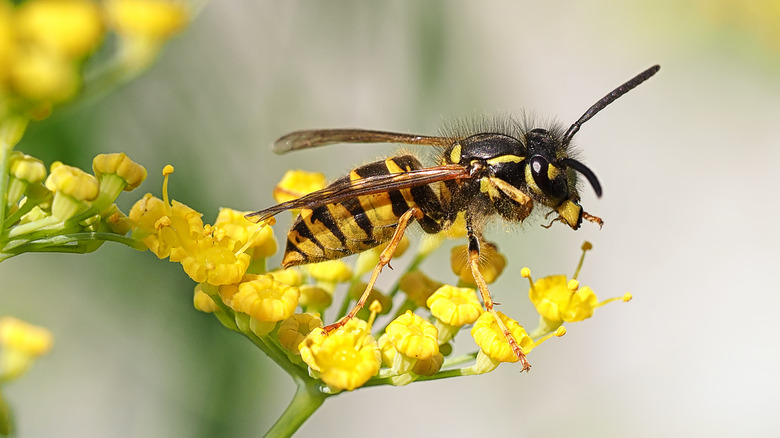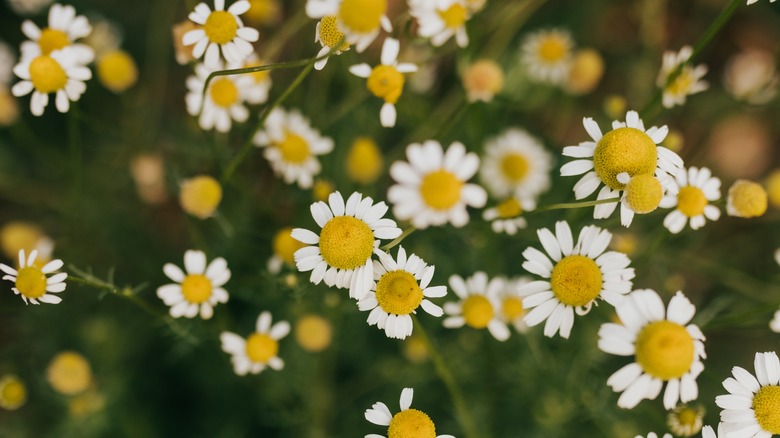Keep Wasps Out Of Your Yard With A Fragrant Perennial Plant They Can't Stand
We may receive a commission on purchases made from links.
Wasps. Their very presence can keep kids indoors when they ought to be getting fresh air, and keep you out of the attic when you ought to be cleaning it. They can ruin your outdoor picnics, barbecues, and if stung, your entire week. They are the foil to a backyard birthday party and can make your time outside in nature a lot less pleasant.
If you want to naturally get rid of wasps and keep them from making a permanent home in your garden, try growing Roman chamomile (Chamaemelum nobile). This flowering herb that has been used to treat nausea, heartburn, and gas. It is used to calm anxiety and reduce skin inflammation. With daisy-like flowers and a strong scent, Roman chamomile is a sweet-smelling and lovely addition to any garden or patio. It also happens to be an effective wasp repellent.
The essential oil of Roman chamomile significantly deterred yellowjackets and paper wasps in a 2013 study for Pest Management Science. While the scent of the herbal flower plant may not be as strong as an essential oil, it can still help. But there's more to it than that. The hidden superpower of Roman chamomile is that its strong aroma can both repel wasps while attracting beneficial insects like bees and butterflies.
How to repel wasps with Roman chamomile
If you are already dealing with an infestation or find a wasp's nest in your yard, it's best to call a professional instead of trying to take care of the issue on your own. Once the pests have been removed, you can keep wasps from coming back to your yard by planting Roman chamomile. Grow chamomile in areas where you and your family spend the most time, or place it in pots near doors to keep wasps from entering your home. It grows in USDA growing zones 4 through 9 in full sun or partial shade along with well-drained soil.
Roman chamomile is low-growing and loves to spread, but it can thrive in pots that are at least 10 inches wide. The herb is fairly drought-tolerant; however, it should be well-watered throughout its first growth cycle. You can plant Roman chamomile in the spring and enjoy the wasp-repelling benefits of its blooms until the first frost.
Other wasp-repelling herbs include lemongrass, peppermint, and lavender – all of which also have aromatic or culinary properties, just like Roman chamomile. For even more wasp-repelling power, try hanging wasp nest decoys around your yard. Wasps are territorial and will not build a nest in an area inhabited by another colony.

